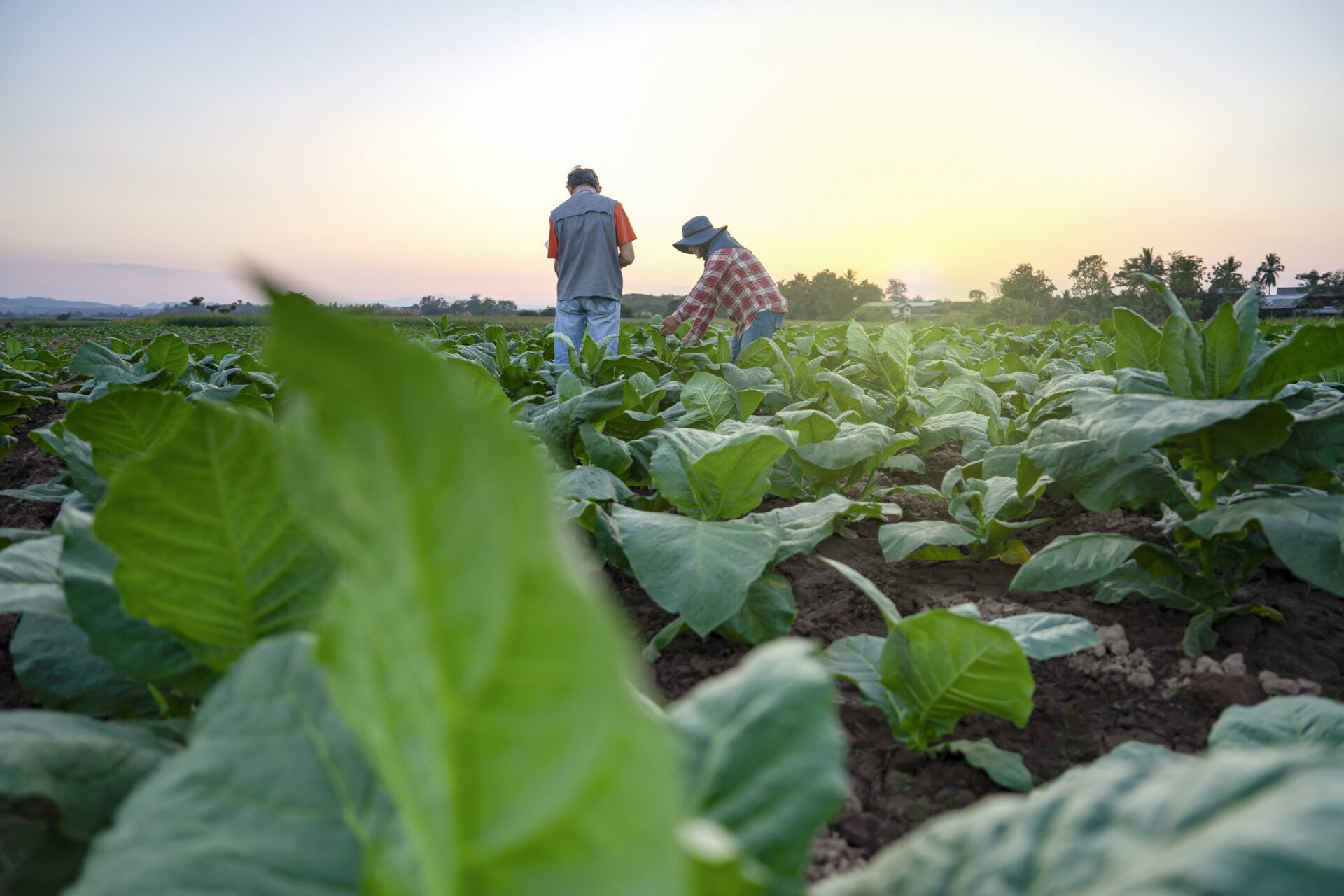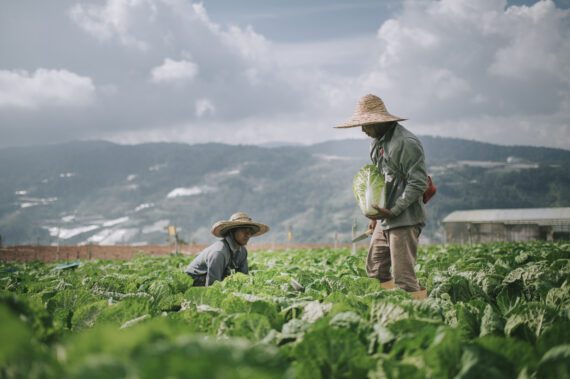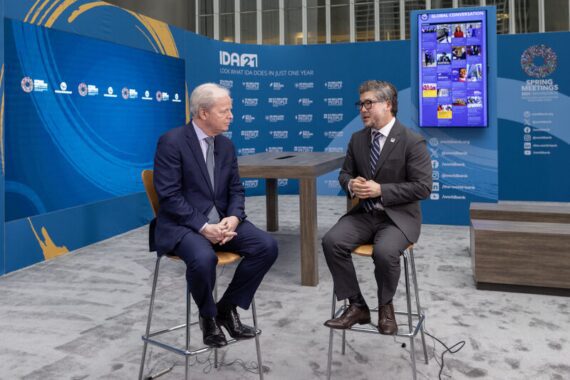By Isabel Vander Molen
One of Bread for the World’s continuing priorities is achieving the 17 Sustainable Development Goals (SDGs) that were adopted by nearly every country, including the United States, in 2015.
While Bread’s primary focus is SDG 2, ending hunger and all forms of malnutrition, the goals are interconnected. This is certainly true when it comes to the need for healthy food systems. “Food system” means simply all the steps involved in feeding people—”from farm to fork.”
Food systems are essential both to ending hunger and malnutrition and to slowing climate change and enabling people to adapt to its impacts. Bread advocates for policies and investments that make food systems more effective, meaning that they enable people to access nutritious food, support long-term sustainability, and offer equitable opportunities to earn a living.
One of the many essential components of establishing effective food systems is enabling mid-size and small-scale farmers both to feed their communities, and to prepare for climate and economic shocks so that they can recover more quickly. The U.S. farm bill’s conservation title includes funding for programs that help farmers manage the financial risks associated with reducing their environmental impact.
In Porter County, Indiana, for example, Brad Hunter was able to pilot a no-till farming initiative intended to enhance the soil quality on the cover-cropped farm he operates. Hunter needed specific climate-funding support in order to modernize his farm operations, and he received it through the farm bill’s Environmental Quality Incentives Program (EQIP). “It’s not easy to step out and do something different on the farm. You question whether it will work … The equipment you need is expensive,” Hunter said.
Thus far, securing funding for conservation at levels that meet the needs has proven difficult. For example, the Inflation Reduction Act, enacted in 2022, allocated $18 billion for agricultural conservation, distributed among four programs: EQIP, the Regional Conservation Partnership Program, the Conservation Stewardship Program, and the Agricultural Conservation Easement Program. But this amount is $4.25 billion less than proposed under the Build Back Better Act,
To scale up investments in agricultural modernization and other initiatives that will help farmers like Hunter build resilience, the United States needs a detailed country roadmap. It should include an ambitious policy framework and clear targets, organized by sector, that coordinate investments from the private, public, and philanthropic sectors. In 2023, the United States was among 160 countries that pledged to start working on such a roadmap by endorsing the Emirates Declaration on Sustainable Food Systems.
The Emirates Declaration focuses on elevating nutrition-related priorities—and the funding allocated to them, specified in a country’s Nationally Determined Contribution (NDC)—within existing national climate strategies. These newly prominent goals include reducing greenhouse gas emissions and improving nutrition outcomes within the food system, as well as enabling people to increase their incomes and strengthen their resilience to climate shocks. The United States was joined by several other countries and regional groupings whose food systems produce significant amounts of greenhouse gases, including Brazil, China, and the European Union.
The U.S. NDC signals to Congress, the private sector, and civil society organizations that there are new opportunities to work alongside the rest of the world in coordinating investment, advocacy, and policy improvements with the goal of modernizing global agriculture. Agriculture is one of the most sensitive sectors to environmental and climate change. Using the U.S. NDC to spur greater private sector investments is critical to marshaling the necessary funding to make farming healthier for people and the planet. Climate-resilient practices that limit the adverse environmental impacts of current farming techniques are urgently needed and will benefit everyone.
All countries are to establish new NDCs in 2025. The U.S. NDC could be released as early as November 2024, during the 29th annual U.N. Climate Change Conference (COP29) in Baku, Azerbaijan. The U.S. government should adopt an NDC with ambitious targets that will allow our country to move toward a more effective food system. This will enable people to eat more nutritious foods, promote equity for food system workers, and help farmers like Hunter adopt agricultural techniques that are more climate-resilient. Smallholder farmers will ultimately benefit from less severe climate change impacts as well—the result of reduced greenhouse gas emissions from U.S. agribusiness and other food system emitters.
Isabel Vander Molen is a climate-hunger fellow, Policy and Research Institute, with Bread for the World.



